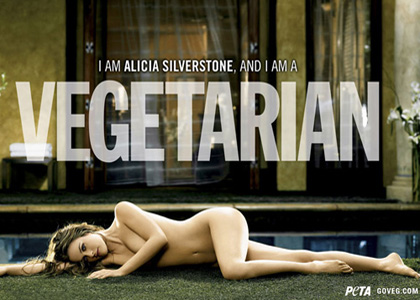
Go green, vegan, raw, buy organic, juice up, chow on berries, ditch sugar. There are anti-cancer diet books, blogs, and products galore that tempt me where it most hurts – the idea that what I eat will make my cancer go away.
It’s anxiety provoking, wanting nothing more than to be cancer free and having to walk through the daily media circus of onco-food washing. There’s so much “information” with so little evidence behind it. It’s overwhelming to know what’s actually good for my body. There are times when I’ve wanted to cry raising a fork to my mouth and wondering if the food on it was killing me.
Some of the logic seems straightforward: put carcinogenic chicken in my body and increase my cancer burden. But for me, it isn’t that simple. Leading up to my diagnosis I was vegetarian for 14 years, vegan for 7 of them, did brown rice fasts, and thrived on organic greens and bulk whole grains. On this clean and green lifestyle, 19 tumors grew in my neck. It’s hard to know where to turn after that.
Enter Shannon, my voice of reason. It killed him to see me so freaked out over trying to be healthy. So we came up with a plan for what I should eat: 1. No dairy – it just makes me feel like crap – except I still eat organic butter, blue cheese, and bread pudding. (Why suck the joy out of life?) 2. Only organic and pasture fed meat and eggs. This means I eat a lot less meat because it’s expensive, hard to find, and almost never available in restaurants. It tastes a hell of a lot better though. 3. No packaged crap. This is nothing new for me. 4. Quality baked goods when I feel like it, which is only every so often. I’m talking peach cobblers with buttery crusts NOT brown rice syrup cookies.
Food is a pleasure for me again. I have no guesswork, no beating myself up at mealtime. And because I made these healthy rules myself, it is easy for me to comply with them, and to change them over time if they need tweaking.
Wheatgrass fasts might be fine for others, but for me, I’m anti anti-cancer diets. Instead I like the idea of crafting food guidelines tailored specifically to my life and my values. When creating a “diet” that worked for me here’s what I considered. Hope these are helpful for you too:
* How much time do I have for special meal preparation?
* How much money do I have in my budget to spend on food?
* What is the availability of quality produce and meats in my area?
* What makes my body feel good?
* Am I getting enough calories, protein, and nutrients?
* Do I trust the sources that are telling me what I should or should not eat?
Do you ever stress out about food contributing to your cancer burden? How do you tame that anxiety? Have you ever tried a cancer diet? Was it sustainable? What is your ideal healthy diet?
![]()
![]()

 “Everything Changes is, without doubt, the most forthright, emotionally sophisticated, and plain-old valuable book of its kind I've seen.”
“Everything Changes is, without doubt, the most forthright, emotionally sophisticated, and plain-old valuable book of its kind I've seen.”












